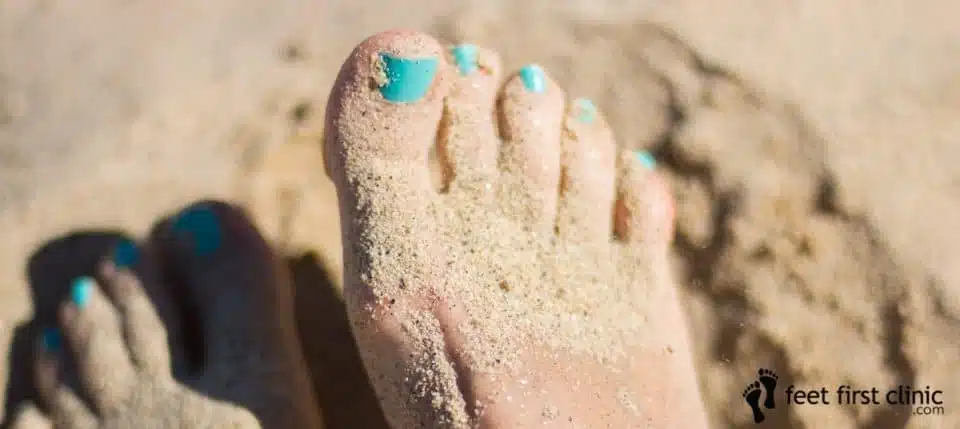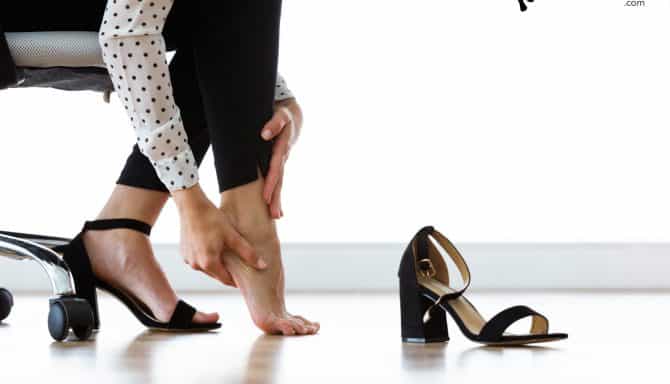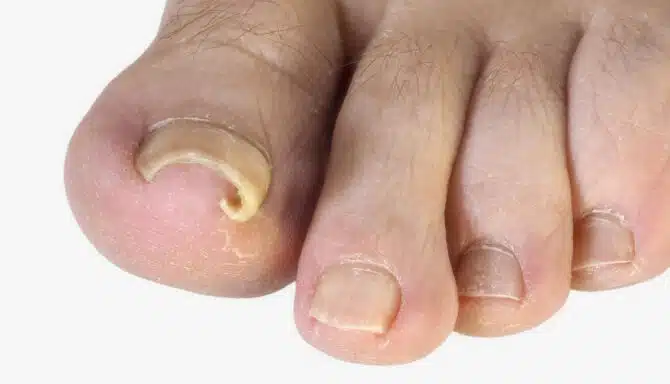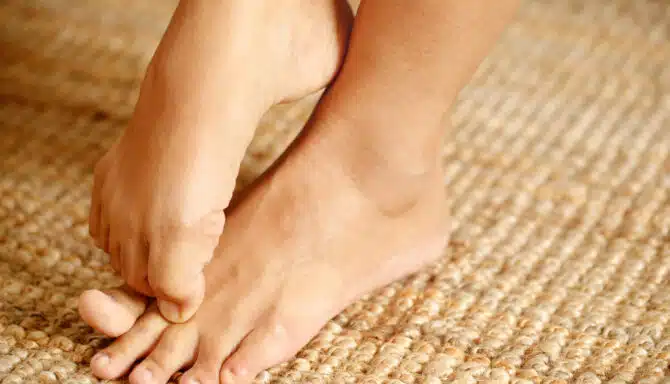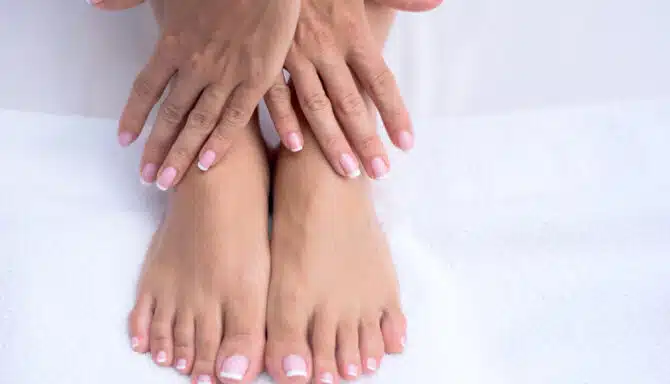Chances are you, or someone you know has lost a toenail at some point. Whether it was from sports or a falling object, detached toenails are quite common. Other than the obvious yuck factor, there are typically few ill effects.
But, that’s not always the case. In this article, we explain the various reasons your toenails might fall off, how to treat a fully- or semi-detached toenail, and how long it actually takes for a toenail to grow back.
Toenails are thickened extensions of the top layer of our skin. Like our skin, toenails are made of keratin, a type of protective protein that is less prone to scratching or tearing than other cell types our body produces. Keratin is particularly tough.
As the cover to your nail bed, toenails are put under a great deal of stress. Everyday pressures include rubbing against your shoes, a stubbed toe, the presence of bacteria and fungi, and being your toe’s protector against falling objects. These types of situations can damage the toenail, sometimes to the point of it falling off completely.
Not only does a nail expose the nail bed below, but it can also be painful, and difficult to ensure a toenail properly grows back in the place of the lost nail. Next, we break down why your toenails fall off in the first place, the rate of toenail growth, as well as some tips and tricks for healthy nail growth.
Why did my toenail fall off?

- Injury
- Trauma can cause the nail to pry away from the nail bed, like when it’s hit or jammed.
- Severe or repetitive toe stubbing/rubbing may cause a toenail to detach. This is also common in athletes who wear shoes that aren’t roomy enough. Similarly, long-distance runners (marathoners and/or ultrarunners) and trail runners are particularly susceptible to black – and ultimately detached – toenails. In fact, you may come across athletes with multiple missing toenails.
- Fungal nail infection, which occurs when fungi invade a fingernail or toenail and the skin underneath the nail. Symptoms include cracked, yellow, discoloured, streaked, thickened, or spotted nails.
- Skin conditions, such as psoriasis.
- Acetone nail polish removers or some soaps.
- Chemotherapy or antimalarial medicines.
- Severe illnesses.
What’s a black toenail?
A black toenail is usually caused by direct trauma to the toenail. Trauma can include dropping an object on your foot, or repetitive trauma to the area like running long distances. Minor trauma, occurring over a longer period of time, can result in black/purple toenails as well. For instance, wearing ill-fitting shoes that put pressure on your big toe can damage your toenail.
The actual colour of the toenail is caused by the trauma beneath the toenail. As the area below the toenail is damaged and begins to bleed, the area darkens resulting in a black/purple toenail.
Toenails can turn black, but they can also become discoloured in other shades, which can be a symptom of a variety of foot conditions. The most common symptoms of a discoloured toenail include:
Yellow Toenail
Toenail fungus is the primary cause of yellow toenails. Additionally, thicker nails can cause a yellow colour as the disruption of light passage through the nail alters the look.
Green Toenail
Green nail syndrome (GNS) is a toenail infection caused by bacteria, not fungus. GNS is usually confined to a single toenail, but bacteria can be passed over from an adjacent toenail if it’s damaged or affected.
Blue Toenail
In very rare cases, your toenail may be blue. This can sometimes be due to cardiovascular disease and lung disease. In extremely rarer cases, a blue toenail may be due to a cellular blue nevus, which can become cancerous.
How long will it take for my toenail to grow back?

Is there anything I can do to make my toenail grow back faster?
Absolutely. Although there’s no single sure-fire way to encourage faster toenail growth, there are lots you can do to encourage a healthy toenail to grow back in the place of your lost partner. Here are some simple at-home remedies for ensuring your nail has the best chance at growing back:
- Soak your foot in a combination of 1 tsp (5 g) of salt and 4 cups (1 L) of warm water for 20 minutes, 2 or 3 times each day, for the first 3 days after you lose your toenail. Cover with a fresh bandage.
- Ensure the nail bed is kept dry and clean until the nail bed is firm and you see signs of the nail growing back.
- Watch for signs of infection such as increased heat, redness, pain, tenderness, swelling, or pus.
- Remove any artificial nail if it begins to separate from the nail bed. Leaving it on can tear the nail bed.
- If you trim off the detached nail, you reduce the chance of nail catching and tearing. If part of your toenail has completely fallen off, don’t remove the remaining nail. However, if there is still a piece of toenail attached, carefully trim it using toenail clippers.
- Take biotin supplements. Biotin aids in the metabolism of protein-building amino acids that are essential for toenail growth.
- Use nail hardeners. Nail softness makes nails more prone to breaking, which increases the need for nail regrowth.
Toenail trouble? We’ve got you covered!
We’re confident in our ability to help inform you and solve your concern with the least amount of discomfort possible. Call us to ask your question(s) and we’d be happy to point you in the right direction. Call us at 416-769-3338 or Click Above to Book Your Assessment Today!
